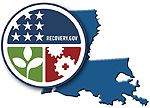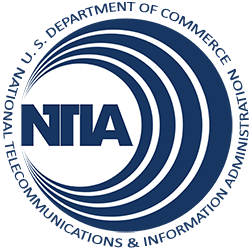Broadband’s ability to expand educational and employment opportunities is especially meaningful for Americans who are deaf or hard of hearing, a community that faces unique challenges in education and that suffers from a rate of unemployment much higher than the national average. Communication Service for the Deaf, Inc. (CSD) intends to expand broadband adoption among people who are deaf and hard of hearing and provide them with online tools to more fully participate in the digital economy. The project proposes to employ a combination of discounted broadband service and specialized computers, technology training from an online state-of-the art support center customized to the community’s needs, public access to videophones at anchor institutions from coast to coast, and a nationwide outreach initiative. Thousands will gain online access to all the Internet has to offer, including sign language interpreters, captioned video services, and other content and functionalities designed especially to advance their educational, employment, and healthcare interests.
Louisiana

| Grantee | Total Award | Type |
|---|---|---|
| Communication Service for the Deaf, Inc. | $14,988,657 | Sustainable Adoption |
| Deaf Action Center of Louisiana | $1,380,513 | Public Computer Centers |
| Nexus Systems, Inc. | $9,163,384 | Infrastructure |
| Portland State University | $3,318,031 | Sustainable Adoption |
| State Library of Louisiana | $8,797,668 | Public Computer Centers |
| State of Louisiana Board of Regents | $80,596,415 | Infrastructure |
| State of Louisiana Division of Administration | $6,649,679 | Broadband Data & Development |
| University Corporation for Advanced Internet Development | $62,540,162 | Infrastructure |
The AccessAmerica Video Remote Interpreting project plans to install 81 new videoconferencing stations, and enhance the user experience at 19 existing stations that serve individuals who are deaf or hard-of-hearing in Northwest Louisiana, and sites in Alabama, California, and Texas. The project intends to use broadband and videoconference technology to provide on-demand, cost-effective sign language interpretation at a total of 100 community partner sites, including community anchor institutions such as hospitals, courts, public safety agencies, shelters, schools, and libraries. Each state-of-the-art video conferencing unit is expected to connect to trained American Sign Language interpreters working at a central call center or otherwise remotely.
Community-serving organizations in the north-central region of Louisiana experience inconsistent and uneven access to high-speed Internet services, which has hampered their ability to deliver advanced healthcare, education, and public safety services to local residents, especially those in rural areas near the Kisatchie National Forest. To address these needs, Nexus Systems’ Louisiana “Piney Hills” Parishes Broadband Infrastructure Project proposes a hybrid fiber and microwave network between Alexandria and Vienna, Louisiana including the construction of 108 miles of new fiber and 90 miles of new microwave links, which will involve constructing one new microwave tower and upgrading 19 existing towers.
The new network intends to extend and interconnect with the $80.6M BTOP Round One broadband infrastructure project grant to the Louisiana Board of Regents by expanding fiber middle-mile services into an area where five of the seven parishes have been designated by the U.S. Department of Agriculture as “Persistent Poverty Parishes” in need of economic development and infrastructure investment.
Partnering with adult literacy and basic education organizations with long histories in their respective states, Portland State University proposes to lead the Learner Web Partnership project to increase broadband use among low-income, minorities, and other vulnerable populations by teaching digital literacy along with English literacy, educating participants to become informed consumers, and providing access to career paths in the digital economy. Project partners will deploy the existing Learner Web software, which has been cited by the U.S. Department of Education’s Office of Vocational and Adult Education as a noteworthy adult education program, for more than 20,000 residents. Instructional materials will address topics including use of broadband for job searches, education and health information, and smart consumer practices. The project proposes a distinctive focus on the needs of adult learners using an approach that combines self-paced learning with live tutorial support.
The Louisiana Libraries Connecting People to Their Potential project plans to deploy more than 760 computer workstations to meet the needs of every library in the state library system. The program will encompass 340 libraries in 64 parishes. In addition, the project expects to establish wireless hotspots and deliver broadband speeds of up to 100 Mbps in each location, and will deploy four mobile computer and training labs to provide enhanced broadband training opportunities to deliver targeted Internet and job skills training
The Louisiana Broadband Alliance, a collaboration among six state agencies, plans to deploy more than 900 miles of fiber-optic network to expand broadband Internet service in some of the most economically distressed regions of Louisiana. The new network intends to provide direct connections for more than 80 community anchor institutions including universities, K-12 schools, libraries, and healthcare facilities. The 3,488-square-mile service area includes 12 impoverished parishes targeted by the state’s Louisiana Delta Initiative and a separate five-parish area that is home to four federally-recognized American Indian Tribes. The new network would connect to the Louisiana Optical Network Initiative (LONI), a more than 1,600 mile fiber-optic network that connects Louisiana and Mississippi research universities to National LambdaRail and Internet2.
Project Components
State Broadband Capacity Building:
Through the capacity building program the state will hire dedicated staff to manage broadband research and coordinate statewide broadband activities for the State of Louisiana. Staff will be responsible for supporting Louisiana broadband initiatives and coordinating the activity of the Louisiana broadband advisory council.
Technical Assistance/Planning Teams:
In cooperation with the Louisiana State University Agriculture Center Cooperative Extension, the technical assistance program will offer subgrants and provide direct training to eighteen targeted parishes in the Louisiana Delta and Florida Parishes regions, in order to develop local broadband assessment and planning efforts in the most underserved areas of Louisiana.
Data Collection, Integration, and Validation:
This project was originally funded for broadband planning activities and two years of data collection. In September of 2010, this project was amended to extend data collection activities for an additional three years and to identify and implement best practices.
Address File Development:
The State of Louisiana will build out address files through collaboration with all parishes, but specifically focusing on rural communities. Once the files are complete, Louisiana will possess an authoritative address file for the entire state, a street layer of census blocks greater than two square miles, and an electronic solution for managing addresses available to parishes.
As part of a longstanding project to connect essential community anchor institutions across the country, and facilitate closer collaboration and long-term benefits for education, research, healthcare, public safety, and government services, the University Corporation for Advanced Internet Development (UCAID) proposes a comprehensive 50-state network benefitting approximately 121,000 community anchors. The project proposes a large-scale, public-private partnership to interconnect more than 30 existing research and education networks, creating a dedicated 100-200 Gbps nationwide fiber backbone with 3.2 terabits per second (TBps) total capacity that would enable advanced networking features such as IPv6 and video multicasting. The project plans to connect community anchors across all disciplines into virtual communities with shared goals and objectives, including colleges, universities, libraries, major veterans and other health care facilities, and public safety entities, with additional benefits to tribes, vulnerable populations, and government entities.
